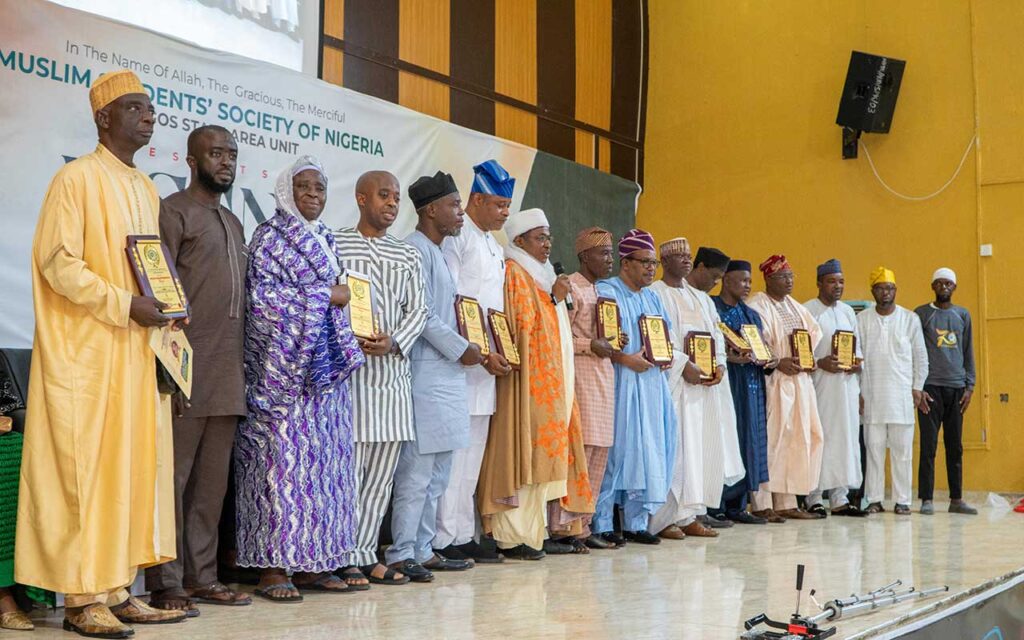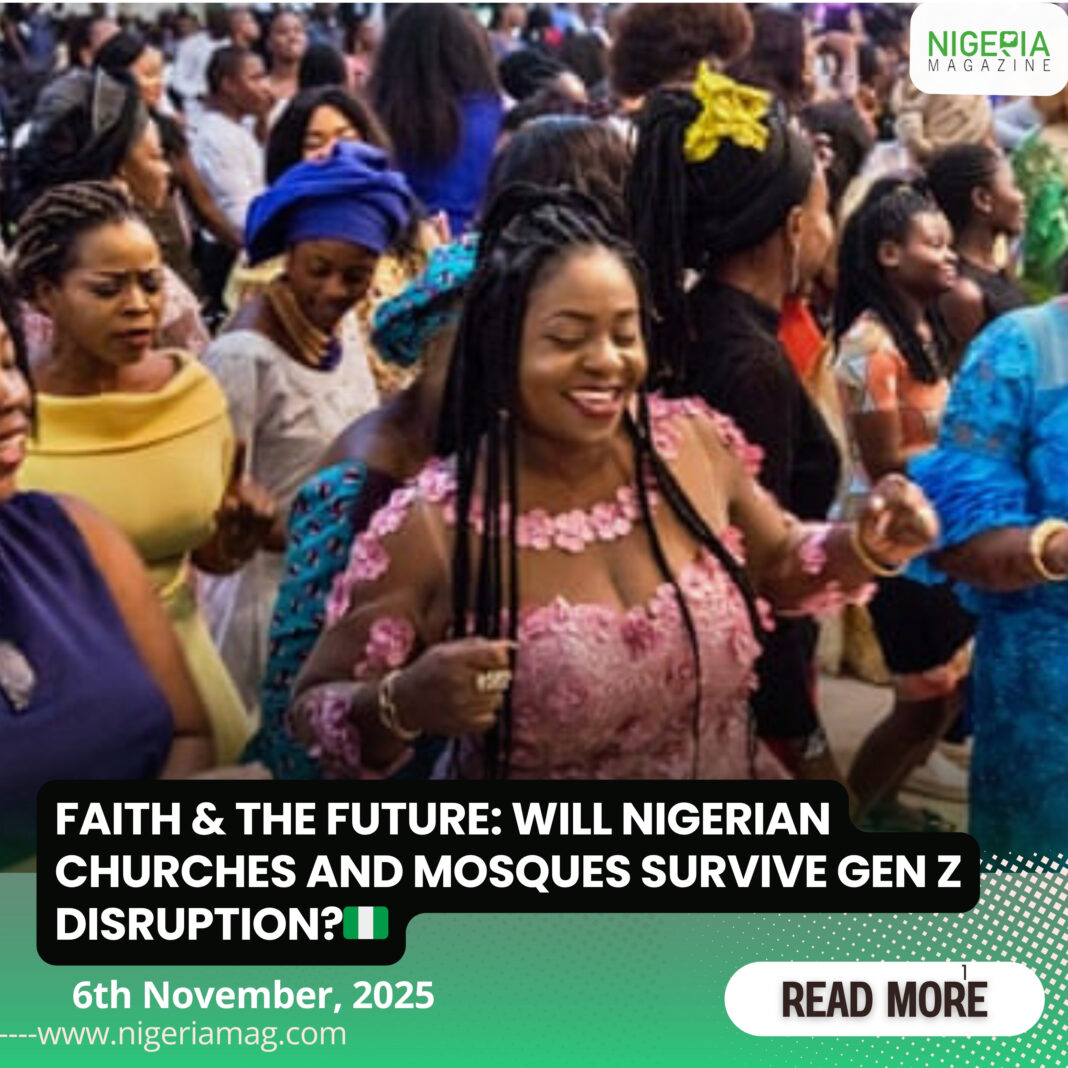Nigeria’s houses of worship have long been central to public life — shaping identity, politics, and community across the country. But a new generation is emerging with different habits, values, and expectations. Generation Z (born roughly between 1997 and 2012) is the first cohort to grow up fully online, and their relationship with religion is unlike anything before it. The question for pastors, imams, and religious institutions is not whether faith will survive — Nigerians remain among the most religious people in the world — but whether traditional churches and mosques can adapt to retain influence and relevance.
What Gen Z Actually Wants
Contrary to the notion that young people are abandoning religion entirely, many Gen Z Nigerians describe themselves as “spiritual,” even if they reject rigid structures. They tend to seek authenticity, transparency, and community rather than hierarchy or fear-based preaching. They value open conversation about real-life struggles — mental health, relationships, and social justice — and expect their places of worship to provide emotional support as much as spiritual guidance.
Gen Z wants spaces that feel safe, inclusive, and modern — places where their faith is not at odds with their realities. In many ways, they are not rejecting faith itself, but questioning forms of authority and performance that feel disconnected from their lived experiences.
Digital Is Not Optional Anymore
The COVID-19 pandemic accelerated a shift that was already underway: faith had to go online. Churches and mosques that invested in livestreaming, WhatsApp fellowships, Instagram devotionals, and online youth programs found themselves better equipped to connect with younger audiences. Pentecostal churches, in particular, have used social media to extend their influence far beyond the walls of their buildings.

However, digital presence alone is no longer enough. Gen Z expects interactivity — opportunities to ask questions, share content, and engage meaningfully. They want religious leaders who can communicate online as fluently as they preach on the pulpit. In a world saturated with content, faith institutions must compete for attention while staying true to their message.
Theology vs. The Attention Economy
Today’s religious leaders are not just competing with other churches or mosques; they are competing with the entire internet. From influencers to podcasts, from TikTok preachers to atheist creators, Gen Z has endless alternatives for exploring spirituality.
The leaders who succeed in this environment are those who can distill complex theological ideas into compelling, culturally aware messages. Short-form video sermons, Q&A livestreams, and creative collaborations are redefining how faith is taught and consumed. The challenge is balancing accessibility with depth — ensuring that the message of faith does not become just another piece of entertainment.
How Mosques Are Adapting
Muslim communities across Nigeria face similar transitions. Many mosques have developed youth groups that operate both offline and online, using Instagram, Telegram, and YouTube to reach younger Muslims. These platforms are being used to teach, mentor, and connect religious principles with practical life — entrepreneurship, education, and community service.

In cities like Lagos and Abuja, progressive Islamic scholars are embracing digital literacy and integrating it into religious education. Still, in more conservative regions, digital outreach remains limited. This creates a gap where young Muslims increasingly turn to global online preachers rather than local imams for religious understanding — a shift that could reshape community dynamics.
Economics, Migration, and the Question of Trust
Faith institutions do not operate in isolation. Nigeria’s economic instability, rising youth unemployment, and migration trends are transforming how young people relate to religious life. Many Gen Z Nigerians are less financially stable than their parents were, and that instability shapes their priorities.
When churches or mosques are perceived as wealthy, political, or exploitative, trust erodes quickly. Younger Nigerians are skeptical of any institution that seems more interested in profit than in people. The youth who feel disillusioned by leadership scandals or prosperity-focused preaching often turn toward smaller, more intimate communities or independent spiritual movements.
Still, institutions that provide tangible value — mentorship, vocational training, or advocacy — continue to thrive. Faith that addresses both spiritual and material realities remains deeply compelling.
Reinvention, Not Preservation
Survival will not come from clinging to tradition alone. The religious institutions that endure will be those that reinvent themselves without losing their soul. Already, some Nigerian congregations are showing what that could look like:
Hybrid Worship Models: Services that blend in-person gatherings with dynamic livestreams, online prayer circles, and digital small groups.
Holistic Support: Faith communities that address mental health, career development, and social issues are seeing stronger engagement.
Youth in Leadership: Including younger voices in decision-making builds trust and relevance.
Media-Literate Theology: Faith leaders who understand the digital language of memes, reels, and storytelling can connect without diluting doctrine.
These shifts show that adaptation does not mean compromise — it means contextualization.
The Risks of Going Digital
Of course, the move online is not without danger. Social media can amplify misinformation, extremism, and shallow “prosperity gospel” messages. When the focus shifts from community to virality, faith risks becoming transactional.
There’s also a risk of alienating older generations who may feel left behind in the digital rush. Balancing innovation with inclusivity is key — ensuring that in modernizing for Gen Z, institutions do not lose the intergenerational bonds that have long been their strength.
The Verdict: Resilient, But Not Guaranteed
Nigeria’s religious institutions are not facing extinction — they are facing disruption. Faith will persist, but the shape of that faith is changing. The next decade will likely see fewer rigid denominational boundaries and more fluid, participatory expressions of belief. Churches and mosques that embrace transparency, empower youth, and leverage technology for genuine connection will continue to thrive. Those that remain rigid or detached from social realities risk becoming relics of the past. Demography still favors religion in Nigeria, but influence must now be earned. Relevance, not authority, is the new currency of faith.
Closing Thought
Gen Z will not destroy religion — they will transform it. They are questioning not because they lack faith, but because they crave meaning that matches the complexity of modern life. For Nigeria’s pastors, imams, and faith communities, this moment is both a warning and an invitation: evolve, engage, and rediscover what spiritual leadership looks like in a digital, restless, and deeply connected generation.


